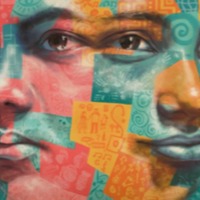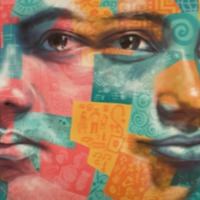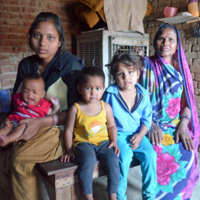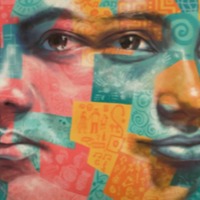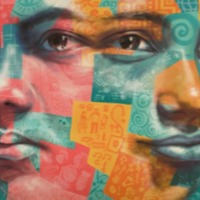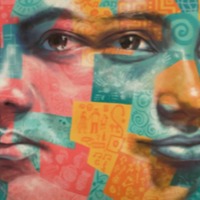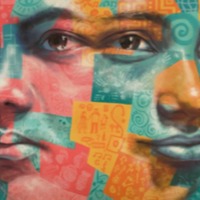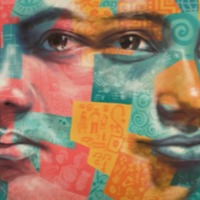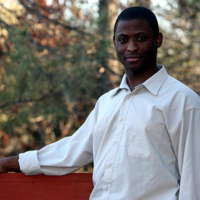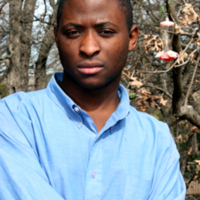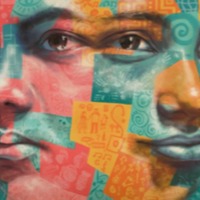
I am Kumar Ramjali from Nepal. I am thankful to the organisers, who gave me this opportunity to be here today. I have a family, with a wife and 2 children and I come from Patlekhet village, of rural Myagdi district of Nepal. I worked on my parents’ farm, and did not have another job. I am a victim of human trafficking in Iraq and a survivor from the incident in which 12 innocent Nepalese were beheaded and shot in Iraq. Due to my poverty in Nepal, and the attractive wage paid abroad, I was eager to work overseas.
I met an agent from an employment company, “Manpower,” in Kathmandu. I was told that I would get 1,200 USD per month for working in a company in America. I paid 100,000 NPRs, approximately 1,300 USDs, to Manpower. That is roughly equivalent to about one year’s salary in Nepal. The agents sent me to Delhi, where I had to pay another 100,000 NPRs, which I managed to do by taking loans. I stayed in Delhi for 19 days, where I had a very miserable time without work or enough food to eat. My passport was taken by the agent. In August 2004, I was taken to Jordan, where I met other men from Nepal. Some of us were told that we would work in America, others were told they would work in hotels in Jordan. But the agent told us “no” – we were instead going to work in an American camp in Iraq.
We did not want to go and we argued with the agent, but we did not have our passports, our families had gone deep into debt, we did not have any money and did not know anyone in Jordan. We were trapped. One night at midnight we were loaded into cars and driven miles across the long desert. We were told to crouch down on the floor with our heads below the windows. We were told we would have a United Nations escort at the border, but that was a lie. We could see men with guns outside and we were very scared. We didn’t know what was happening, and none of us could communicate with the driver. In Baghdad we were held in a locked room with no electricity. The Iraqi agent only unlocked the door to throw food inside. We were held for 8 days in that horrible place.
We learned that 2 of the vans that were in our caravan were carrying 12 Nepalese who were missing. We later learned that they had been stopped by insurgents, and that the 12 men were kidnapped and murdered, their executions broadcast on the internet. That bad news scared us that anything could happen to us at any time. Finally, we were flown to the Al Assad B1 airbase. I was put to work right away in the laundry. I worked 12 hours a day, 7 days a week. I was paid 290 USD a month, which was much less than I had been promised.
10 of us slept in bunks crowded into small containers. It was very crowded and hot. The companies I worked for were US military contractors and partners, a Jordanian company and KBR, an American company. I was supervised by men from Dowd and Partners, and they were supervised by men from KBR. I worked in the laundry for two months, then I was transferred to the fuel pump, where I worked for 18 months. I spent a total of 4 years at the base. The last years I worked in garbage collection. I eventually got a raise to 580 USD per month, but I always worked 12 hour days, 7 days a week and I slept in the same container. I did not want to stay but had no option to leave. Outside the camp was miles of desert and it was dangerous. Even in the camp there were mortar fire and bombings. I could hear, and see, the bomb explosions near the fuel pump. I had to work very hard and continuously, with my eyes open all the time. I didn’t have a single moment when I could breathe easily. I got nightmares every time I slept. I asked over and over to go home. One day my passport was returned to me and I was put on a flight back home. I hope that my statement can help the families of the 12 Nepalese who were killed. The families filed a lawsuit in the United States against Dowd and KBR. I also hope that you will listen to our voices and take steps to stop others from suffering as we have done.
As told to the UN Human Rights Council, 7 June 2010
